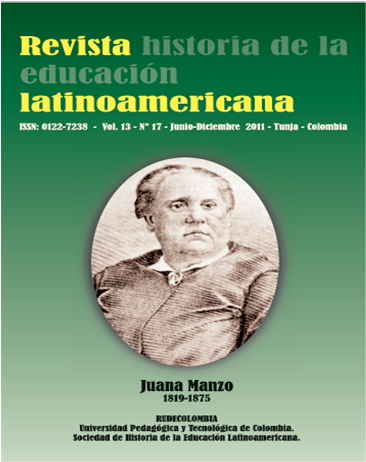UNIVERSITY TEACHER TRAINING IN TEACHING SKILLS

Abstract
The research summarizes the contributions of research projects aimed at training, professional development and knowledge of the most valuable skills mastered by the faculty. We build a map of the teaching competencies most valued by experts, a large sample of teachers and tutors, at the end of the cycle, from which a model is designed to promote teacher training college and the consolidation of professional identity, or through the integration of quantitative and qualitative methods. It highlights two major forms of competence: domain linked to the keys of the EHEA, the society of knowledge, communication, research and innovation in teaching and those linked to improving the teaching process: professional identity, mentoring, planning, methodological system, media design, evaluation, they have to integrate teaching theory and practice in educational institutions.Keywords
Journal of Latin American Education History, professional development, teaching skills, competencies learners, institutional climate, training, methodological integration, complementarity of the training models.
Author Biography
Antonio Medina Rivilla
Doctor en Pedagogía y Licenciado en Psicología. Catedrático de Didáctica y Organización escolar, Profesional de Educación a Distancia en UNED- España. Experto en Diseño de programas para el desarrollo de conferencias en entornos educativos y de las organizaciones. Doctor y Profesor Honoris Causa, Instituto Universitario Italiano de Rosario(IUNIR). Argentina.
María Concepción Dominguez Garrido
Catedrática de universidad de Ciencias Sociales. Departamento de Didáctica, Organización Escolar y Didácticas Especiales. Profesional de Educación a Distancia en UNED – España
Fernando Riveiro Goncalves
Doctor en Ciencias de la Educación. Catedrático Universidad do Algarve – Portugal. Presidente de RIAICES (Red Iberoamericana en investigación de la calidad de la Educación Superior). Vicepresidente de la Sociedad Portuguesa de Ciencias de la Educación.